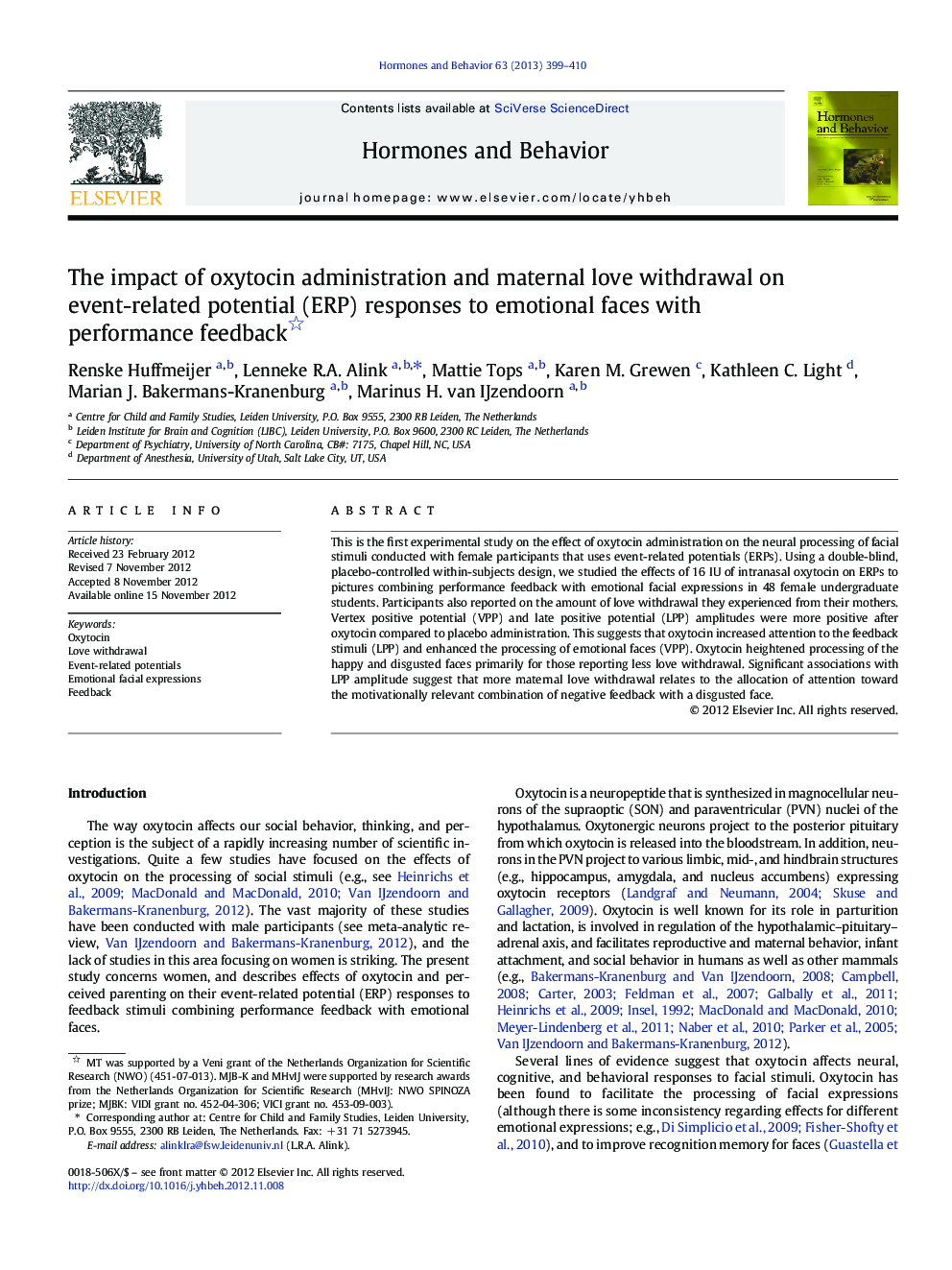| Article ID | Journal | Published Year | Pages | File Type |
|---|---|---|---|---|
| 323988 | Hormones and Behavior | 2013 | 12 Pages |
This is the first experimental study on the effect of oxytocin administration on the neural processing of facial stimuli conducted with female participants that uses event-related potentials (ERPs). Using a double-blind, placebo-controlled within-subjects design, we studied the effects of 16 IU of intranasal oxytocin on ERPs to pictures combining performance feedback with emotional facial expressions in 48 female undergraduate students. Participants also reported on the amount of love withdrawal they experienced from their mothers. Vertex positive potential (VPP) and late positive potential (LPP) amplitudes were more positive after oxytocin compared to placebo administration. This suggests that oxytocin increased attention to the feedback stimuli (LPP) and enhanced the processing of emotional faces (VPP). Oxytocin heightened processing of the happy and disgusted faces primarily for those reporting less love withdrawal. Significant associations with LPP amplitude suggest that more maternal love withdrawal relates to the allocation of attention toward the motivationally relevant combination of negative feedback with a disgusted face.
► Oxytocin increases attention to the feedback stimuli (more positive LPP amplitude). ► Oxytocin enhances the processing of emotional faces (more positive VPP amplitude). ► Higher maternal love withdrawal is related to smaller increases in VPP amplitude after oxytocin administration. ► Higher maternal love withdrawal is related to directing attention (LPP) to negative feedback combined with a disgusted face.
